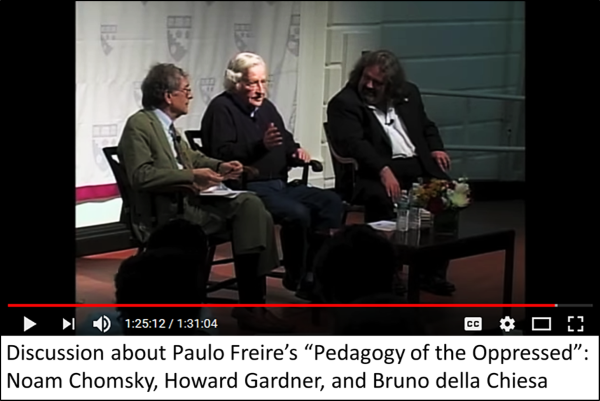Download SAKAN Reference Documents
 Throughout the long history of human evolution, progressive cognitive development has been the key driving force. The process of acquiring knowledge and understanding through thought, experience, and the senses, and the progressive capability of sharing such knowledge and understanding, has driven our species from its evolutionary origins in Africa nearly a billion years ago, to today’s technologically dependent Fourth Industrial Revolution (4IR). The very significant scientific discoveries that emerged from the ancient caves of South Africa’s Blombos and Sibudu caves have morphed into today’s 4IR fueled Twitter feeds and similar messaging services that discourage global leaders and their followers from acquiring invaluable new knowledge at any levels greater than often misleading headlines.
Throughout the long history of human evolution, progressive cognitive development has been the key driving force. The process of acquiring knowledge and understanding through thought, experience, and the senses, and the progressive capability of sharing such knowledge and understanding, has driven our species from its evolutionary origins in Africa nearly a billion years ago, to today’s technologically dependent Fourth Industrial Revolution (4IR). The very significant scientific discoveries that emerged from the ancient caves of South Africa’s Blombos and Sibudu caves have morphed into today’s 4IR fueled Twitter feeds and similar messaging services that discourage global leaders and their followers from acquiring invaluable new knowledge at any levels greater than often misleading headlines. The section begins with the thoughts of one of the world’s most celebrated linguists, philosophers and great thinkers of our times - Noam Chomsky discussing Paulo Freire’s Pedagogy of the Oppressed; a highly appropriate body of knowledge that addresses the “oppression” of knowledge exclusion, and the most appropriate method of tuition consistent with the rapidly changing 4IR-driven information explosion, and its tragic consequence of mass information and knowledge exclusion, a form of information apartheid with potential to decimate the land that invented the societal variety. Please click the video image to access this discussion of Paulo Freire’s thoughts by leading academics in this critical field of research. Drawing from the thoughts of the Brazilian Paulo Freire aligns well with the SAKAN philosophy, drawing as it does from the Brazilian LAN House experience of technological appropriation by the socioeconomically excluded children of Brazil.
South Africa can benefit greatly from partnerships with Brazil, established within the growing BRICS community of Brazil, Russia, India, China and South Africa.
- Metaphors;
- GDC Opinion 2023;
- SA_Inequality_Stats 2023;
- SA Connect Review 2022;
- Wapaloza2022Notes;
- Wapaloza2022;
- WapalozaSep2019;
- SA Clouds and Digits;
- ICT4SDG WTISD2021;
- Department of Human Settlements June 2016;
- South African Smart City Initiatives 13 September 2019;
- SAKAN.ORG Interim Constitution;
- SADC Regional Connect Education Challenge;
- Statement by His Excellency President Cyril Ramaphosa at the BRICS Summit - 26 July 2018.pdf;
- Statement by His Excellency President Xi Jinping at the BRICS Summit - 26 July 2018.pdf;
- World Bank 2016: Evoke – Developing Skills in Youth to Solve the World’s Most Complex Problems;
- Digital Media for ECD in Finland: "Fun and games: Digital media in Finland's preschools", 1st April 2016;
- A Sakan presentation to DHET on "Information for a Changing World: Social Inclusion in a changing world", 29th June 2018;
- Tackling South Africa’s Inequality, Poverty, Unemployment;
- Inequality, Poverty, and Jobs: South Africa’s relationship to the Fourth Industrial Revolution: Walter Brown, February 2017;
- Presentation by the Brazilian Technical Delegation accompanying the Brazilian President’s state visit to South Africa: 27 February 2010: Introduction of the Brazilian LAN House concept.;
- Dwesa Village Connection Business Modeling and Feasibility Analysis, October 2008;
- World Bank South Africa Inequality of Opportunity 2012;
- Rethinking Digital Inequalities: The Experience of the Marginalized in Community Technology Centres in Brazil's favelas: Dr David Nemer, University of Kentucky
- The South African Early Childhood Review 2016 was developed by Ilifa Labantwana, the Children’s Institute at the University of Cape Town (UCT) and the Department for Planning, Monitoring and Evaluation (DPME) in the Presidency.
- Poverty traps and social exclusion among children in South Africa: SAHRC and UNICEF. 2014.
- Inequality of Opportunity, Income Inequality and Economic Mobility: World Bank 2013;
- A 2007 PowerPoint presentation at Monash University's South African Campus, linking ICT to Africa's Human Development;
- Submission to the Competition Commission South Africa Data Services Market Inquiry, June 2019;
- Conference Paper: ICT INFRASTRUCTURE 2019 Conference and Expo hosted by EE Publishers;
- Conference Presentation: ICT INFRASTRUCTURE 2019 Conference and Expo hosted by EE Publishers;
- Digital Financial Services for SDGs - Talking Points;
- ECIS 2009 Presentation: ICT4Human Dev.;




